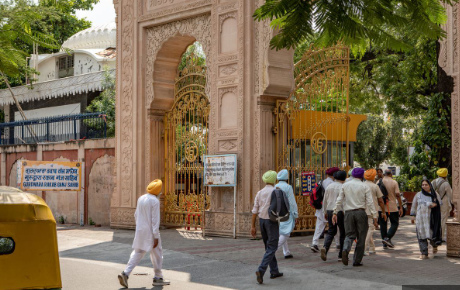Analyzing the Varied Responses of India to the Khalistan Row with Canada and the US

The US Attorney for New York has pressed murder-for-hire charges against Indian national Nikhil Gupta, alleging his involvement in plotting the assassination of Khalistani separatist Gurwatpant Pannun on US soil. Importantly, US investigations point to Gupta’s collaboration with an “Indian government employee,” echoing Canada’s stance and aligning with Prime Minister Justin Trudeau’s characterization of such individuals as “agents of the Indian government.”

The US press release goes beyond Canada’s allegations, shedding light on Gupta’s background, implicating him in serious crimes like “international narcotics and weapons trafficking.” It also details the events that foiled the attempt on Pannun’s life, involving undercover US officers extracting information from Gupta about instructions purportedly received from the “Indian government employee.” Notably, a specific incident on June 20, 2023, where CC-1 (the “Indian government employee”) sent a news article and messaged Gupta, ‘[i]t’s [a] priority now,’ is highlighted.

The US covert operation also reveals a connection to the assassination of Hardeep Singh Nijjar in Canada. Two days before receiving instructions to prioritize Pannun’s killing, Gupta informed an undercover agent that Nijjar ‘was also the target’ and stated, ‘we have so many targets.’ Nijjar was murdered in British Columbia on June 18, as per the press release.

In contrast, the Canadian government has maintained a veil of secrecy regarding its investigation, refraining from disclosing any specifics. On September 18, Justin Trudeau dropped a significant accusation against India during a parliamentary session, and shortly thereafter, Foreign Minister Melanie Joly announced the expulsion of an Indian diplomat, creating a dramatic turn of events.

The US covert operation also reveals a connection to the assassination of Hardeep Singh Nijjar in Canada. Two days before receiving instructions to prioritize Pannun’s killing, Gupta informed an undercover agent that Nijjar ‘was also the target’ and stated, ‘we have so many targets.’ Nijjar was murdered in British Columbia on June 18, as per the press release.

In contrast, Canada has maintained secrecy in its investigation. On September 18, Trudeau accused India in parliament, leading to the expulsion of an Indian diplomat by Foreign Minister Melanie Joly, creating a diplomatic crisis.

The question arises: why hasn’t New Delhi employed a similarly assertive stance against the US? Some dismissively attribute it to the notion that Canada is not comparable to the US. A more credible explanation, however, suggests that the US conducted a thorough investigation, disclosed specific details, and pressed charges, whereas Trudeau appeared to have prematurely acted due to domestic political considerations.

Nevertheless, numerous voices contend that the information consistently surfacing in the US media, spanning from the thwarted attempt on Pannun’s life to the Nijjar assassination, and its recurrence in discussions between Indian officials and their American counterparts, is just as detrimental as Trudeau’s statement in the parliament.

As the US officially announces charges, international media buzzes with narratives, and revelations suggest the Five Eyes may have tipped off Canada on the Nijjar killing, the world watches India’s response closely.




